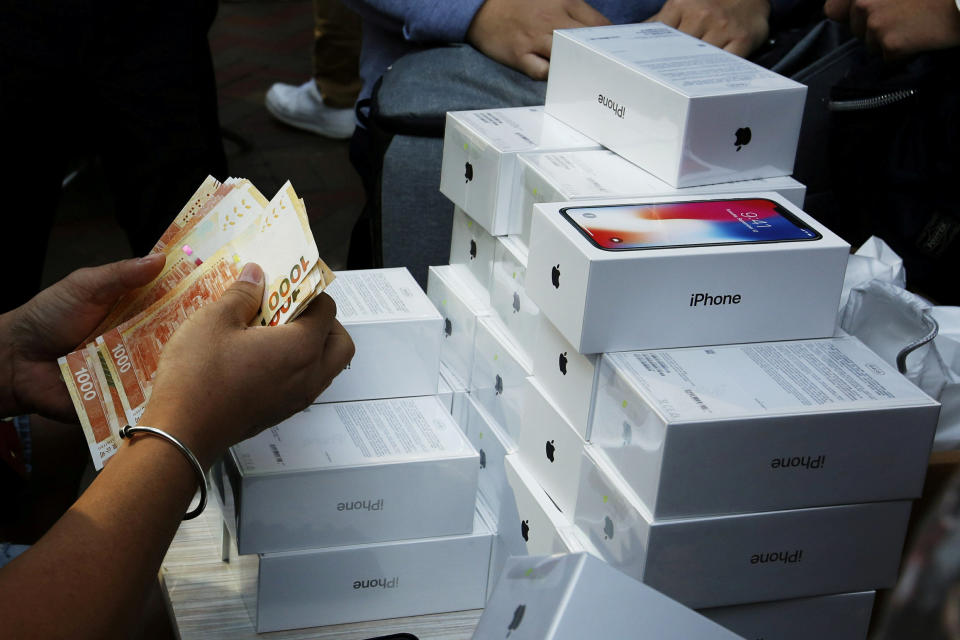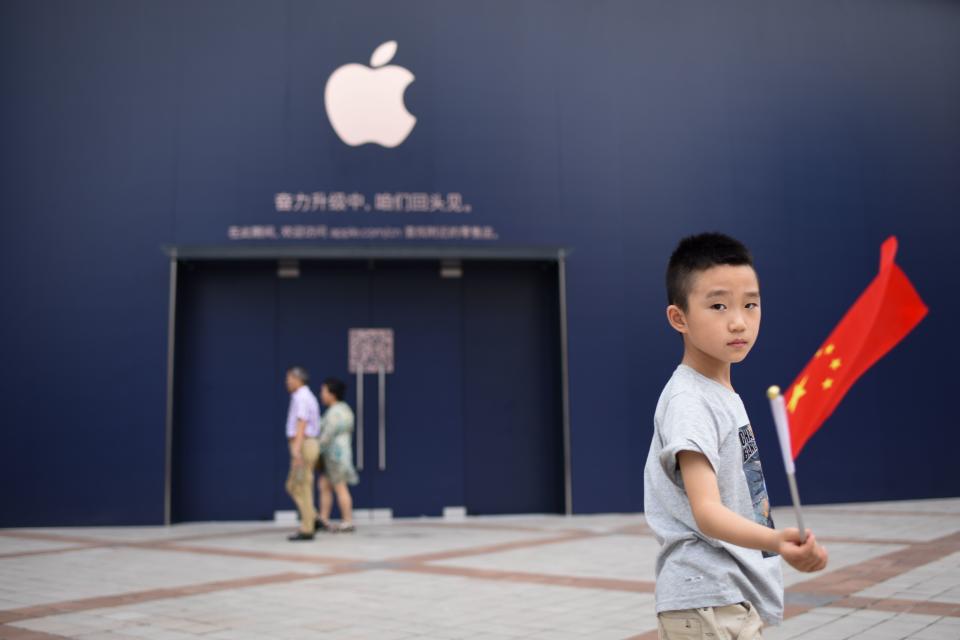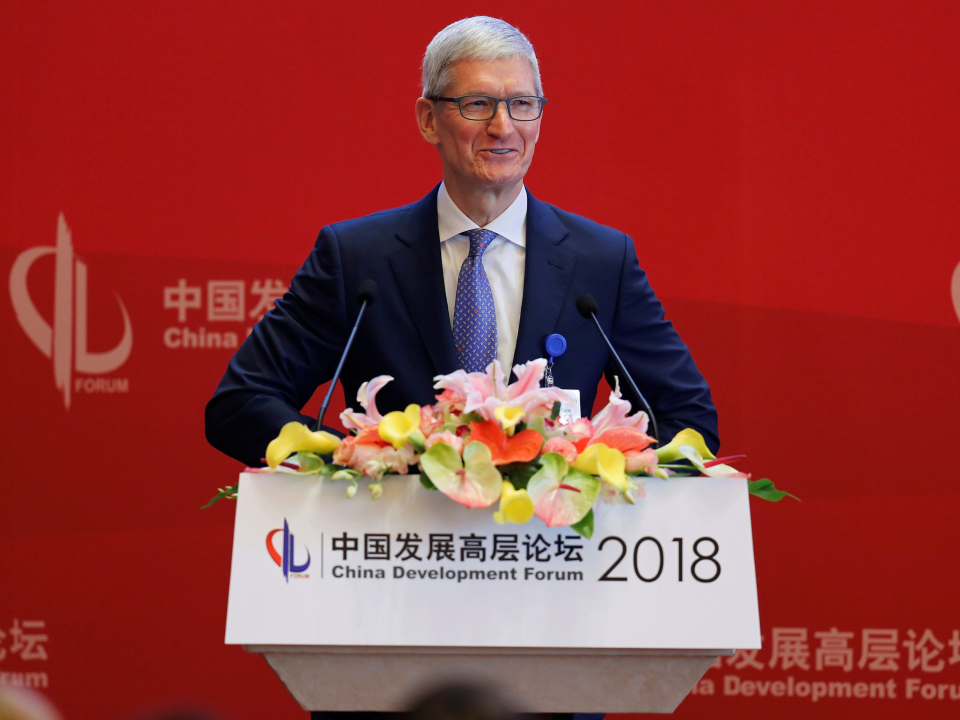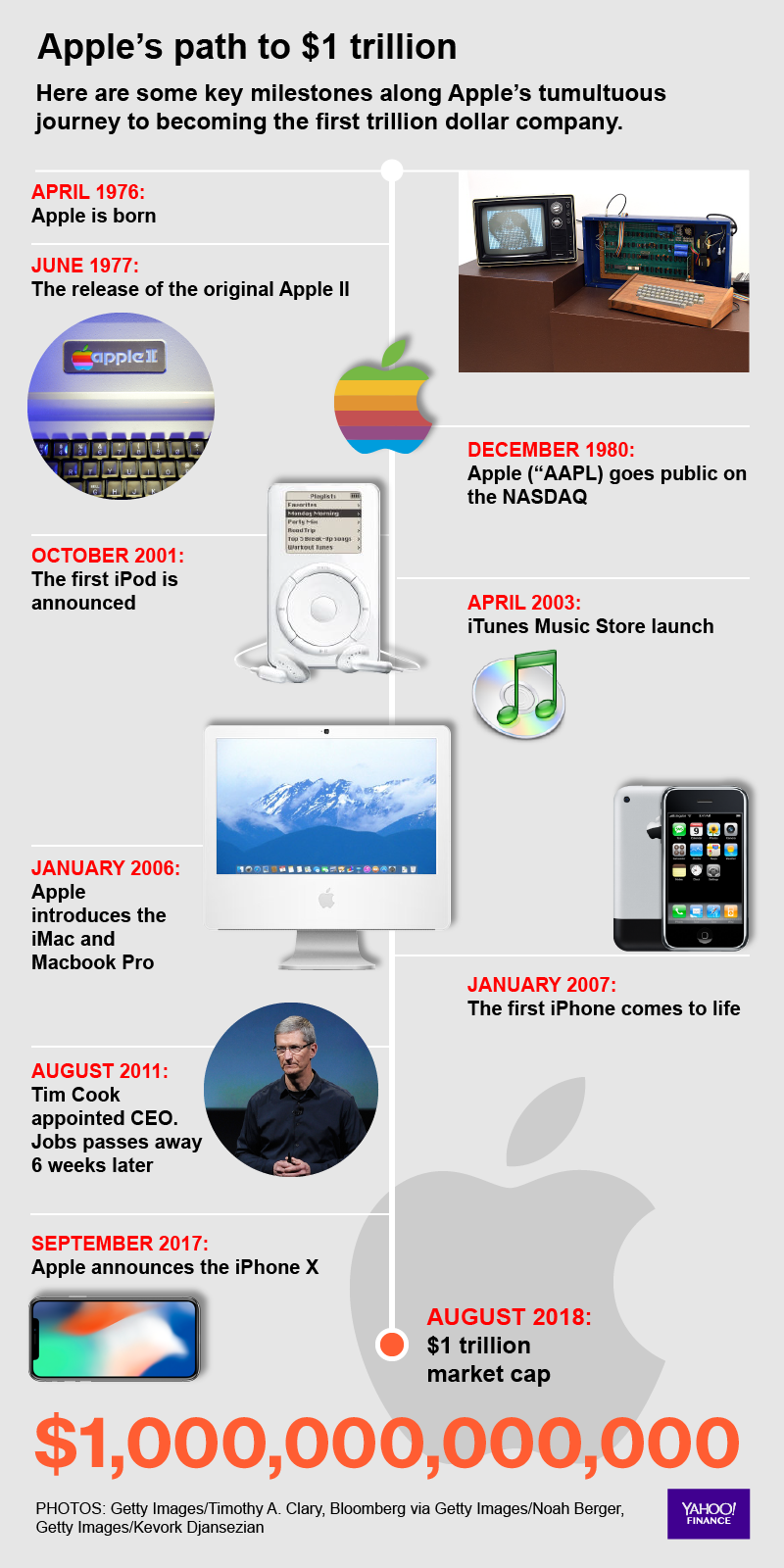How Apple succeeded in China, where other tech giants have failed
What’s so special about Apple (AAPL)? When the company made history Thursday by becoming the first U.S.-listed company to be valued at $1 trillion, people tried to answer that question.
It could be Apple’s innovative technology, high-quality premium products, or the smart business model of building an ecosystem. But what differentiates Apple from other frontrunners in the $1 trillion race could also be — China.
China is not just where Apple manufactures iPhones; the world’s largest smartphone market makes up about one-fifth of Apple’s revenue. While other U.S. tech giants are either blocked (Facebook and Google) or marginalized (Amazon) in China, Apple has managed to establish a strong presence there. During Wednesday’s earnings call, Apple reported a 19% year-over-year growth during the quarter in Greater China, the fourth consecutive quarter that it recorded double-digit growth in that region.
In the first quarter of 2018, iPhones accounted for 13% of China’s smartphone market, according to Counterpoint Research. Though it’s facing challenges from local players like Huawei, which just surpassed Apple in smartphone sales for the first time, the access to the world’s fastest-growing consumer market with 550 million middle class gives a big boost to Apple’s bottom line. Here’s what Apple did to become a household name in China.
Marketing as a status symbol

Since 2008, Apple has been using omni channels and working with local carriers to bring its phones into the mainstream in China. When other retailers put phones behind locked glass counters, Apple leaves their phones out for display, so consumers can touch and play. Apple now runs more than 40 stores in China and has lined up more openings in inland cities.

iPhone is a premium product in the U.S., and even more so in China, where most people’s monthly income can’t afford a $1,000 iPhone X. The image of being high-end and less affordable has made the iPhone even more desirable. Using the latest model of iPhone is usually associated with prestige.
The craze peaked in 2015 when Apple launched the iPhone 6 and iPhone 6 Plus. Chinese consumers embraced the bigger screens with great fanfare, even though China was not among the first group of countries Apple released the product to. A black market was created to traffic iPhones from overseas markets and sell to Chinese at a markup. That quarter, Apple’s revenue from China doubled to $12.5 billion.
“Chinese consumers are fanatic about aspirational logo driven status symbols,” said Shaun Rein, founder of China Market Research Group, who believes this gives the rise of iPhone as an “affordable luxury product.”
Comply with government rules

For foreign companies in China, dealing with the local government could be a major ordeal. U.S.-born internet companies usually face pressure from China’s censorship rules.
Apple CEO Tim Cook is in close contact with the Chinese government. He actively attends and speaks at state-hosted conferences. Under pressure from Beijing, Apple removed all Virtual Private Networks (VPN) from their App Store in China. People inside the country use VPN to get around Internet censorship. Earlier this year, Apple moved Chinese users’ iCloud accounts into a state-run data center in China, raising concerns that this could open a backdoor for the Chinese government to access users’ iCloud data.
For Apple, the stakes are particularly high in China. When Google exited the market nine years ago, it just moved servers and closed some offices. But the government has a chokehold on Apple’s entire business. “Even Apple doesn’t sell to Chinese consumers, they’re sourcing products from China. They can’t afford to upset the Chinese government, because if they were to do so, it’s gonna destroy their entire business,” Rein told Yahoo Finance.
Other Silicon Valley giants are taking notes about Apple’s success. Facebook has unsuccessfully registered a subsidiary in China, while Google is reportedly developing a censored search engine for China.
“Apple is an example Google wants to follow when it comes to regulatory and lobbying,” said Rein.
Krystal Hu covers technology and economy for Yahoo Finance. Follow her on Twitter.
Read more about Apple:


